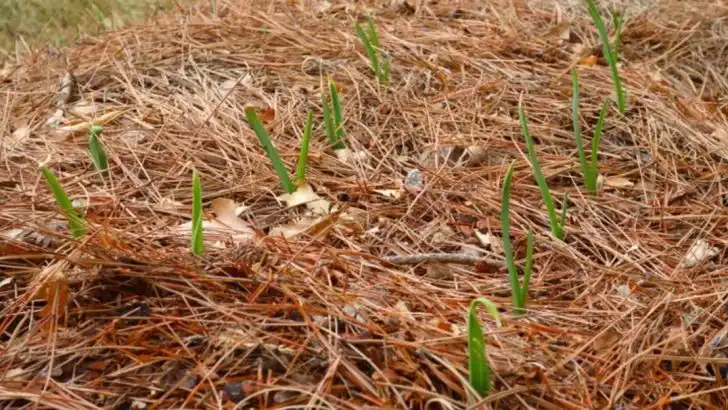Slugs and snails are the uninvited guests that never know when to leave. They slither in, feast on your plants, and leave behind a slimy mess like it’s their own personal buffet.
But you don’t have to put up with their nightly raids. Keeping them out can be just as clever as they are sneaky. It’s all about turning your garden into a place they can’t stand.
From natural barriers to surprising scents that send them packing, there are plenty of tricks to reclaim your garden without resorting to harsh chemicals. And the best part? It’s easier than you think.
Ready to kick those slimy pests to the curb? Here are some creative ways to do just that.
Beer Traps
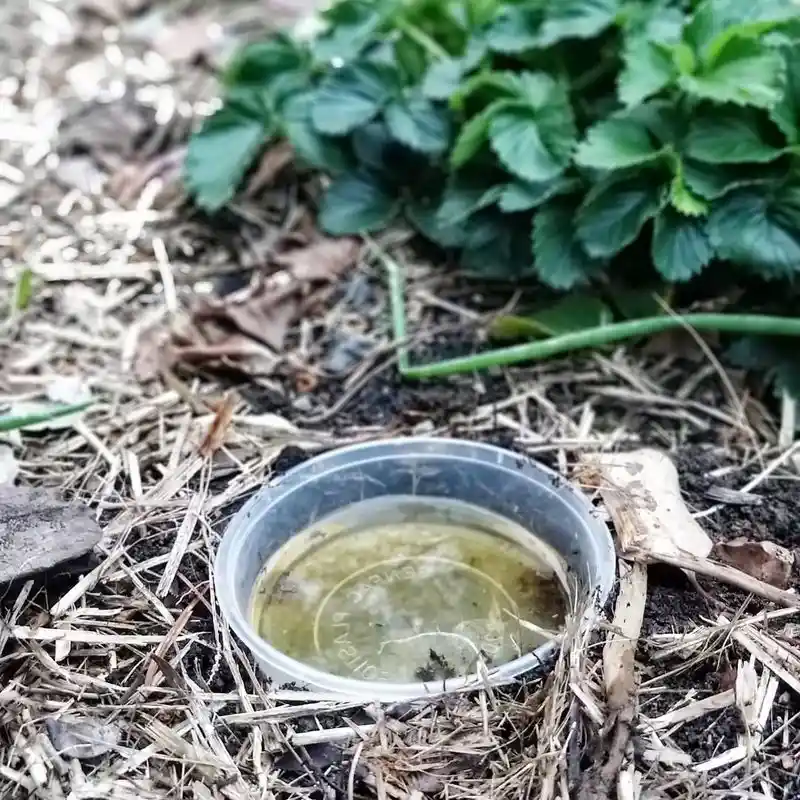
Let’s raise a toast to an unexpected solution! Beer traps are a celebrated way to deter slugs and snails. Simply fill shallow dishes with beer and place them around your garden. The aroma attracts these pests, leading them into a sudsy demise. Place the traps in the evening for best results, as slugs are more active at night. Not only is this method eco-friendly, but it also adds a quirky twist to your gardening routine. Remember to empty and refill the dishes regularly to maintain their effectiveness. Cheers to a slug-free garden!
Copper Tape
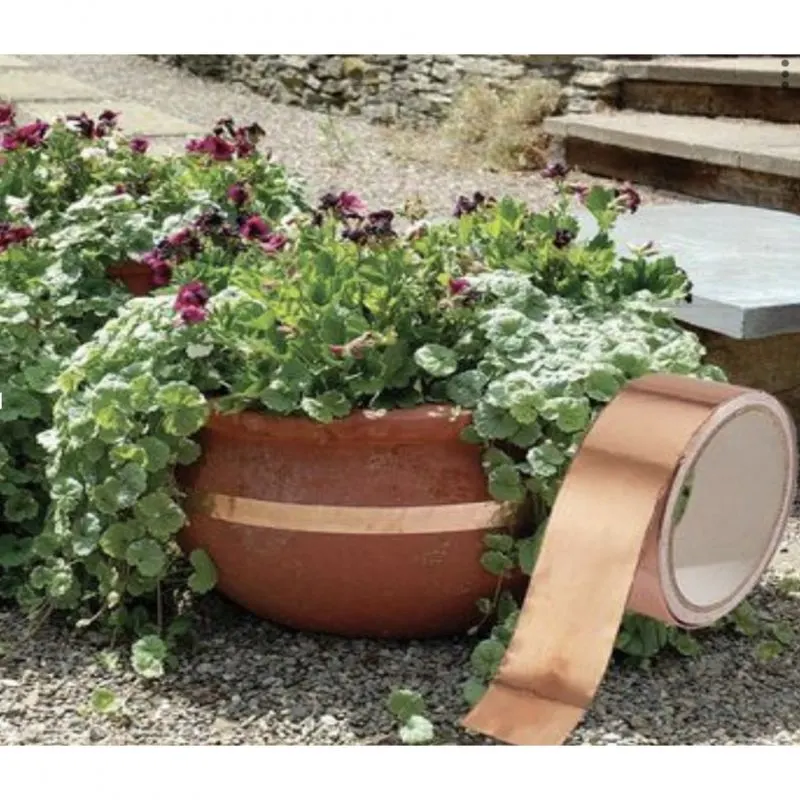
Copper tape offers a shiny defense against garden invaders. When slugs and snails touch copper, it generates a small electric charge that repels them. Wrap the tape around pots, planters, or even garden beds to create a barrier. This method is particularly effective for container gardens. The beauty of copper tape is that it’s a long-lasting solution, requiring minimal maintenance. It’s a practical and stylish way to protect your plants, blending seamlessly into the garden aesthetic. Give your garden a high-tech edge with this metallic shield!
Eggshell Mulch
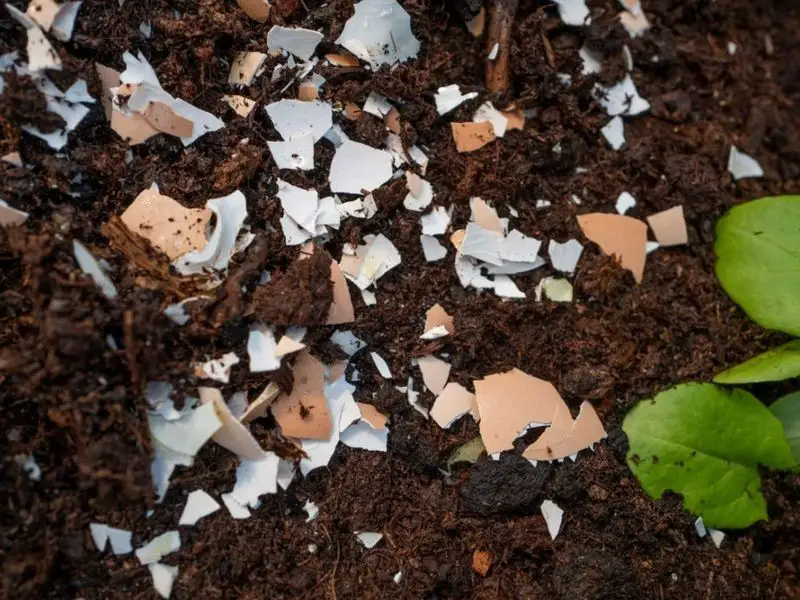
Eggshells aren’t just for breakfast anymore! Crushed eggshells make an excellent mulch that deters slugs and snails. The sharp edges of the shells irritate these pests, keeping them away from your precious plants. Scatter the shells around the base of plants for optimal protection. This method is not only effective but also environmentally friendly, recycling waste into garden gold. Over time, the eggshells break down, adding nutrients to the soil. Embrace this natural solution and watch your garden thrive without the uninvited guests.
Diatomaceous Earth
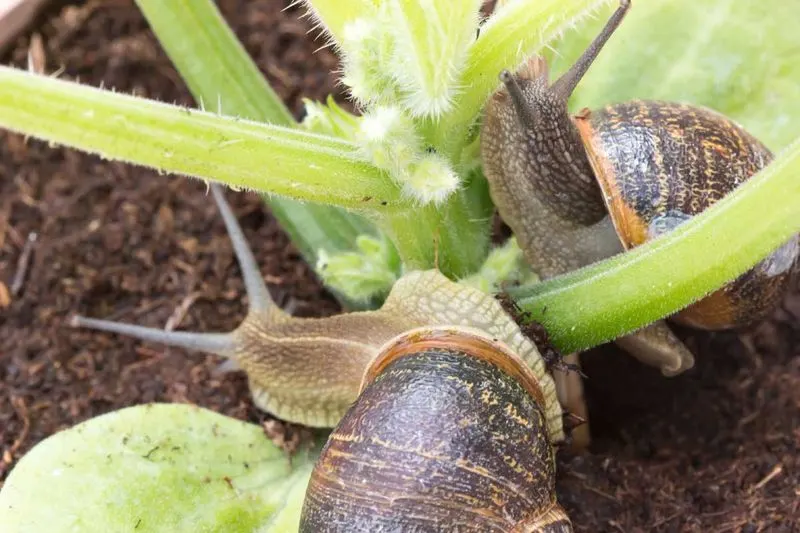
Unleash the power of ancient microorganisms with diatomaceous earth. This fine powder is made from fossilized algae and can effectively deter slugs and snails. Sprinkle it around the base of plants, creating a barrier that pests won’t cross. Diatomaceous earth dehydrates these slimy intruders, ensuring they steer clear of your garden. It’s a non-toxic, natural option that’s safe for humans and pets. Regular application after rain or watering maintains its efficacy. Bring a touch of the prehistoric to your pest control strategy!
Coffee Grounds
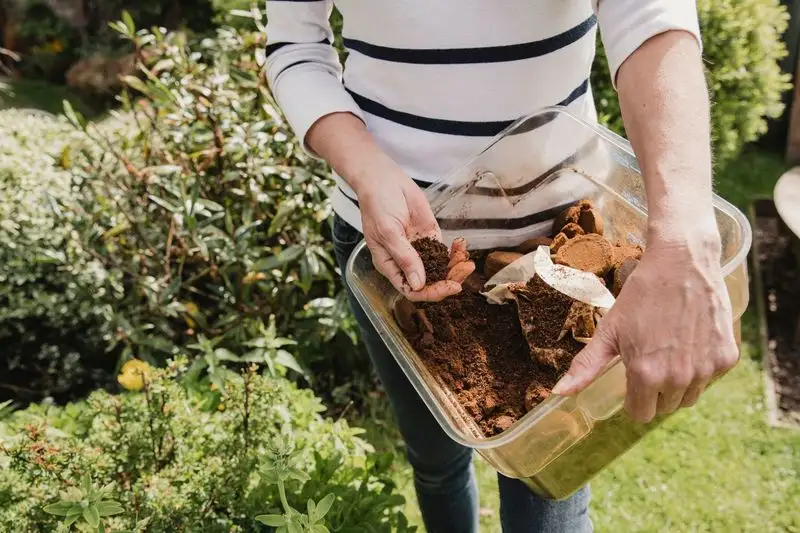
Coffee lovers rejoice! Used coffee grounds are a fantastic slug and snail deterrent. The caffeine is toxic to these pests, and the gritty texture is off-putting to their tender bodies. Sprinkle the grounds around your garden beds for a fragrant, effective repellent. Not only do coffee grounds keep slugs away, but they also enrich the soil with organic matter. This eco-friendly method combines pest control with soil improvement, making it a win-win for gardeners. Brew a pot, enjoy your cup, and let your garden enjoy the leftovers!
Nematodes
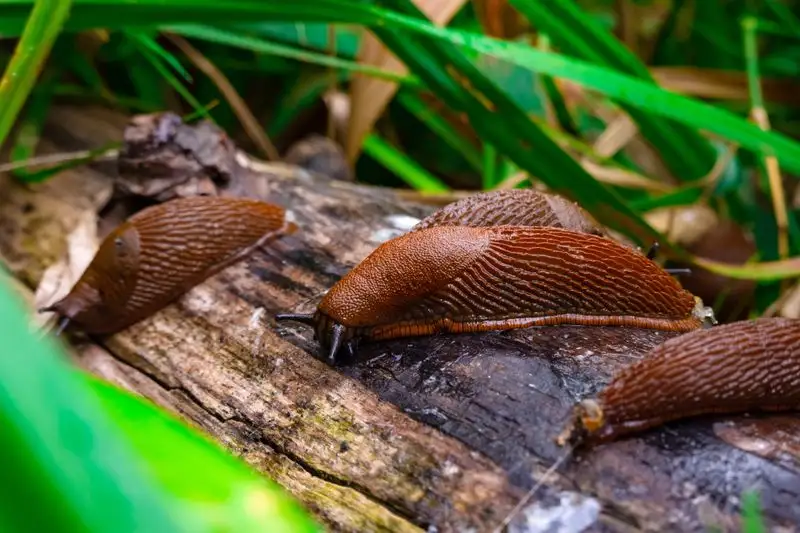
Let nature lend a hand with nematodes. These microscopic worms target and eliminate slugs by infecting them, reducing their population over time. Introduce nematodes into your garden by mixing them with water and applying to the soil. Nematodes are a biological control method, offering a sustainable way to manage pests without harming other beneficial organisms. They are particularly useful in damp areas where slugs thrive. Harness the power of nature’s tiny helpers and enjoy a healthier garden ecosystem.
Salt Barrier
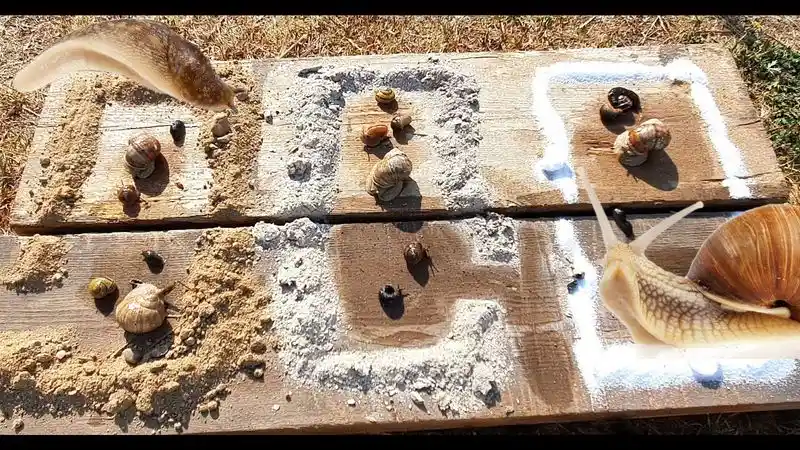
Salt may be an age-old enemy of slugs and snails, but it must be used with caution. Create a salt barrier by sprinkling a line around garden beds, deterring pests from crossing. However, avoid placing salt directly on soil or plants, as it can harm them. This method is best used as a temporary measure or in small areas. It’s a straightforward solution for those desperate moments when slugs are in abundance. Use sparingly and enjoy the peace that a salt-free garden can bring!
Pine Needle Mulch
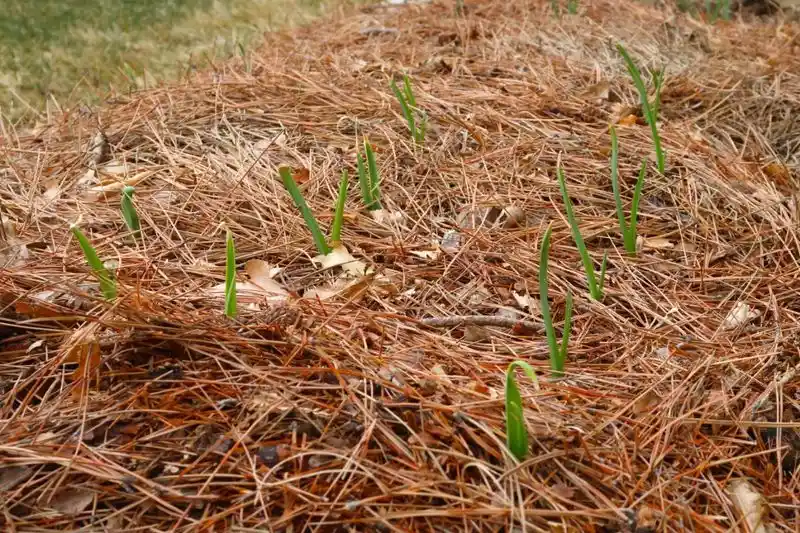
Bring the forest to your garden with pine needle mulch. This natural barrier is unwelcoming to slugs and snails, thanks to its sharp and uneven texture. Spread pine needles around plants to form a protective layer. Not only does pine needle mulch deter pests, but it also helps retain moisture in the soil and adds acidity, which certain plants love. It’s an organic approach that complements your garden’s ecosystem beautifully. Enjoy the dual benefits of pest control and soil enhancement with these prickly protectors.
Wool Pellets
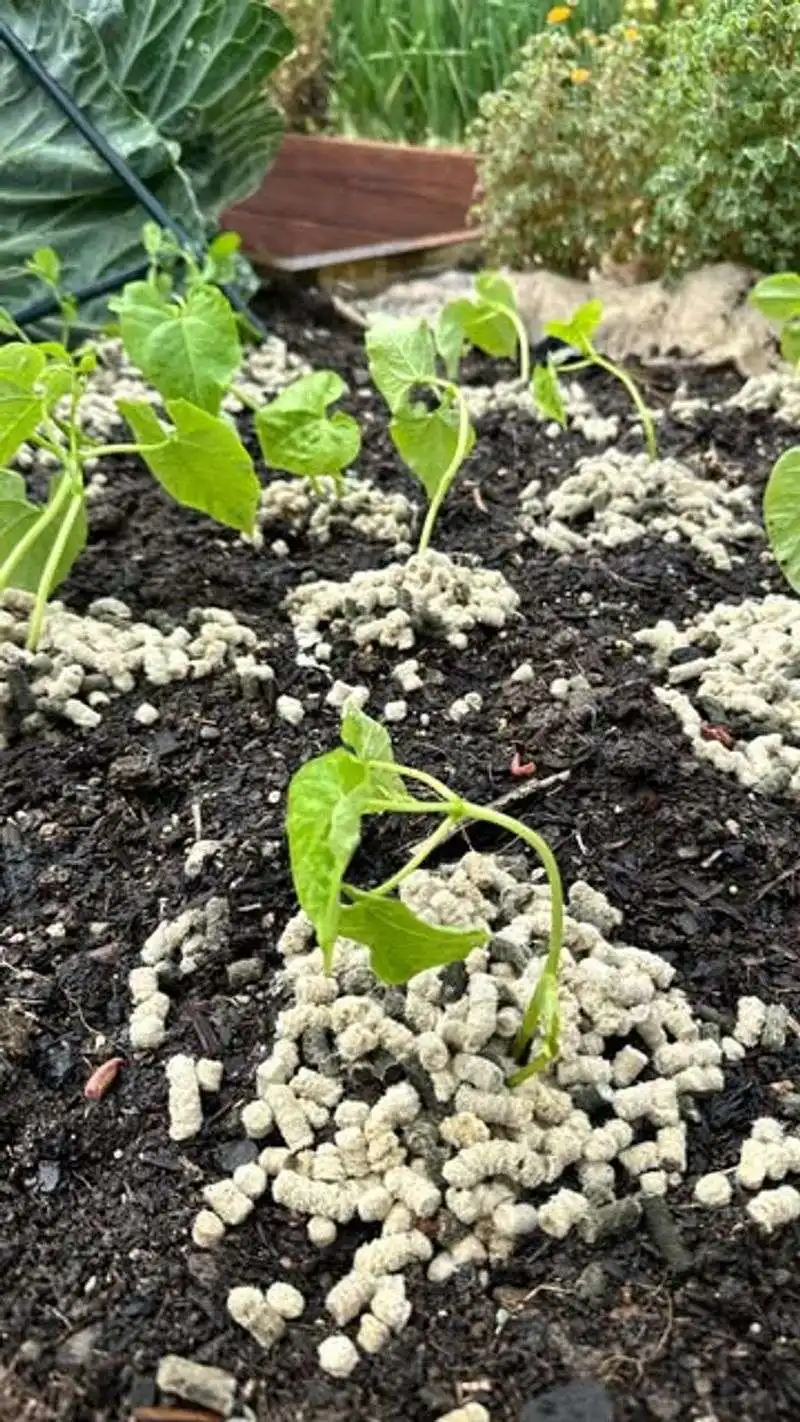
Wool pellets offer a cozy defense against garden intruders. Made from natural sheep wool, these pellets expand when wet, forming a thick mat that slugs and snails find challenging to cross. Scatter them around plants for a protective barrier. Besides deterring pests, wool pellets add nutrients to the soil as they decompose. This sustainable solution appeals to eco-conscious gardeners seeking a gentle yet effective option. Let your garden luxuriate in the warm embrace of woolly protection!
Garlic Spray

Garlic isn’t just for warding off vampires! A garlic spray can effectively repel slugs and snails. Crush garlic cloves and mix with water, then spray the solution on plants. The pungent smell deters pests, keeping your garden safe. This natural remedy is both cost-effective and simple to prepare. Reapply regularly, especially after rain, to maintain its potency. Embrace the power of garlic and say goodbye to unwanted garden guests with this aromatic solution.

